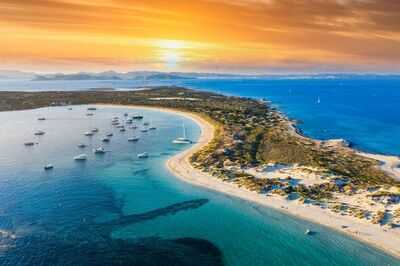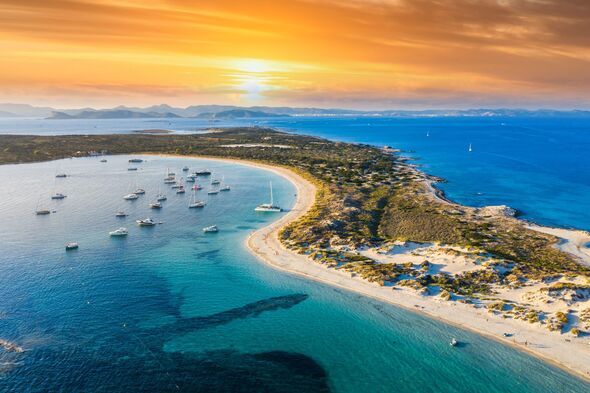

Officials in are in panic over the implementation of saying it has paralysed a tourist hotspot loved by Britons. Exports to the US from across the globe have been subject to a baseline levy after the initial higher reciprocal tariffs were paused. And the new rate is still causing considerable panic across European countries as the tourism sector could suffer consequences.
Exports from the were, like the rest of Europe, originally hit with 20% tariffs. Despite being reduced by half, the news has still raised concern among officials in the archipelago, . Local government figures show that exports to the US between 2017 and 2024 was €312 million (£269m).

Majorca is being hit by Donald Trump's tariff war and the island expects Brits to feel the impact.
Yacht charter companies say bookings for June and July have been "paralysed" because tourists, especially Germans, are uncertain about the future.
President of the association that brings together this sector within the APEAM employers' association, José María Jiménez says German holidaymakers can, under usual circumstances, best afford the €2,000 or so to charter a luxury yacht.
Bookings for Easter and May are relatively okay because they have already been paid for but June and July currently remains stagnant.
And the APEAM says it is not just the German market facing a rocky road ahead, it's the Brits as well who might well think again about expenditure on holidays.
Although economists point out that the Balearic Islands will be, along with the Canary Islands, one of the autonomous regions least affected by the tariff war due to the low level of its exports, they have also warned of the indirect effects and the 'domino effect' that can be generated by the impact on the main tourist markets, such as Germany and the British. This 'collateral damage' is beginning to appear in yacht charter activity, says Diario de Mallorca.
Mr Jiménez says the luxury yacht sector is very much based on the hiring of groups. What they are seeing are requests for information and quotes but no concrete bookings.
The APRAM points out that the demand for this activity is strongly based on the German clientele, made up largely of groups of friends, and with ages ranging from 45 years old and up. These are people with purchasing power who can easily afford to pay about 2,000 euros per week to rent a boat, taking into account that the expense is divided between eight or ten people.
The hope is the situation will normalise and that bookings will recover their normal level, given that the forecast was very similar to those of 2024, which implies a positive balance, although not as good as that reached in 2022 and 2023 when the tourist boom took place after the pandemic.
It is also hoped that this summer, a new law will be approved which tightens the conditions to be able to develop the nautical charter activity in the archipelago, so that it is limited to professional boats, which means curbing the unfair competition that was sometimes practised by yachts for private use.
In addition, these rental boats will be required to have a mooring point in a Balearic port, thus curbing the irregular activity of those who ar
And the tariffs have had a direct impact on exports from the Balearics.
While sales of commonly used household goods such as olive oil and wine are subject to potential impact, the largest export in that time period was locust bean gum, also known as carob gum. The product's seed provides a thickening agent in food technology.
The total value of the shipment to the US stands at a staggering €48.1million. In second place is footwear, ranking the second largest export, followed by cosmetics.
The Balearic government had allocated €6 million of funds to combat the tariff impact on the economy, yet officials have now announced that they will freeze some of it.
Catalina Barceló, the director-general for the economy, says: "We will have to get used to these ups and downs and to the uncertainty, which is never good for the economy because it creates instability in the market. We will support the affected sectors because it is not easy to change markets overnight."

The director-general says the government is concerned about how the levies may impact the tourism industry: "It is too early to see the consequences, but everything indicates that growth will slow. We must keep an eye on Germany, the UK, France, Italy. If things go badly for our source markets, things will go badly for us."
The US stands as one of the largest suppliers of imports in the world, with their market share increasing exponentially over the past few years. The largest imports to the country are machinery and technology, followed by chemical and pharmaceutical products, mineral fuel and mineral fuels.